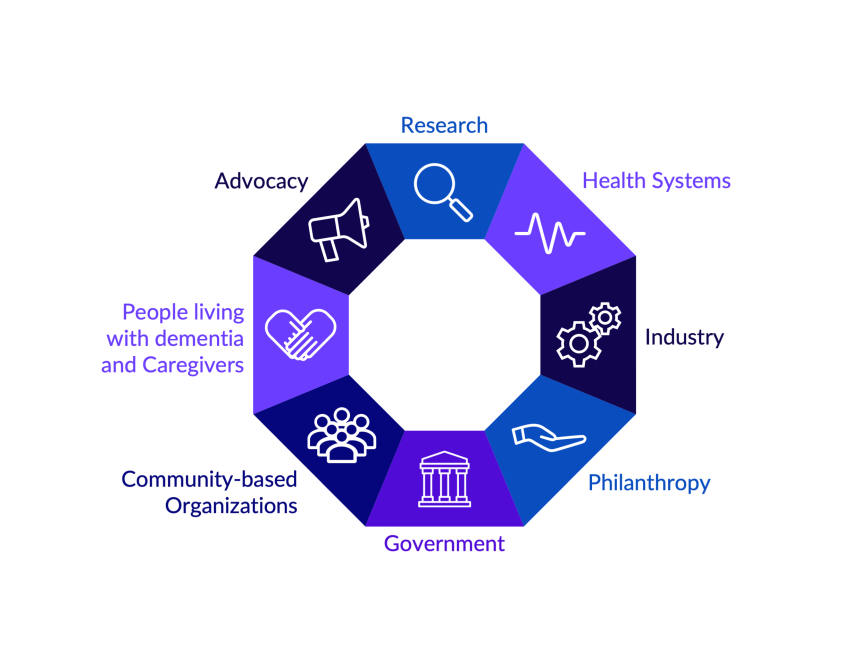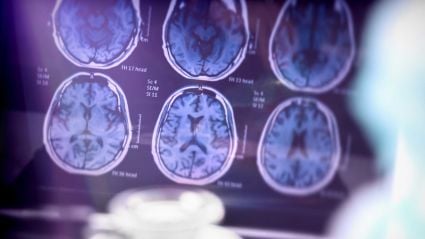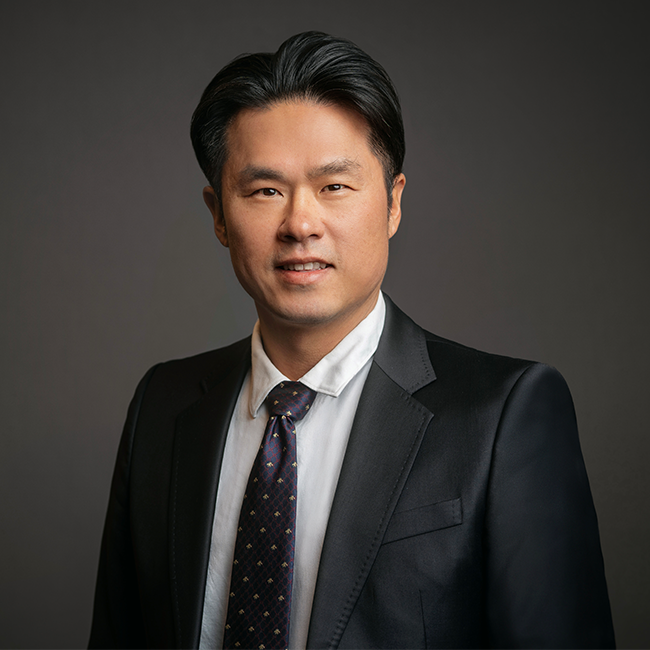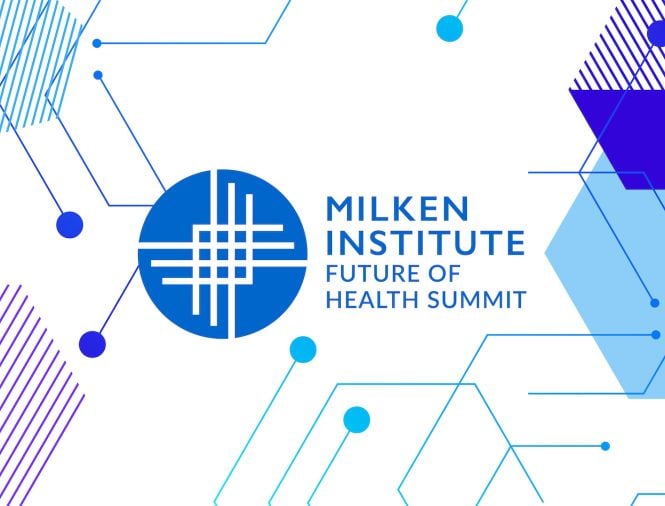

Brain Health
Mind the Gap: Investing in Dementia as an Opportunity to Extend Healthspan

 CP
CP
Mind the Gap: Investing in Dementia as an Opportunity to Extend Healthspan

 CP
CP
In our signature program, the Alliance to Improve Dementia Care, we bring together a multi-sector coalition of leaders to uncover the latest breakthroughs in brain health and we work to increase timely detection, improve access to treatment, coordinated care, and address health equity for people at risk for or living with dementia and their caregivers. Through expert workgroups, convenings, collaborative initiatives, and thought leadership, the Alliance amplifies and promotes the adoption of proven polices, solutions, and promising innovations in dementia care.
The Alliance to Improve Dementia Care
The Alliance Aims to Accomplish These Goals:
-
Unite a cross-sector coalition: Convene and engage diverse stakeholders, including health systems, industry, research, advocacy groups, community-based organizations, philanthropy, government, and, most importantly, individuals with lived experiences, to foster collaboration and alignment in dementia care efforts.
-
Identify and scale best practices in dementia care delivery: Ensure individuals receive high-quality, evidence-based care by identifying, amplifying, and scaling best practices in early and accurate diagnosis, treatment, and comprehensive care through value-based payment models.
-
Advance policy and regulatory solutions: Work with federal, state, and local advisory boards, agency leaders, and elected officials to overcome long-standing care and financing barriers and advance scalable solutions.
-
Strengthen a dementia-capable workforce and community: Develop and promote policies that build a dementia-capable workforce across the care continuum, equip employers to support employees affected by or caring for someone with dementia, and expand community-based resources with better prevention, detection, and care resources.

Brain Health
Highlights
-

Request for Proposals: Kissick Family Foundation Frontotemporal Dementia Grant Program (2025-2026)
The Kissick Family Foundation Frontotemporal Dementia (FTD) Grant Program will fund a third cohort of research studies to understand the fundamental biology of why and how sporadic forms of FTD develop. In partnership with the Milken...Read Article -

Mind the Gap: Investing in Dementia as an Opportunity to Extend Healthspan
We are living through an age of remarkable longevity. Globally, the number of people aged 60 and over is projected to double in the next 25 years. But this longevity boom masks a critical problem: the growing gap between lifespan and...Read Report
 CP
CP
-

Improving Early Detection of Cognitive Impairment and Dementia
DOWNLOAD REPORT The prevalence of mild cognitive impairment (MCI) and dementia is increasing as advancements in medicine, public health, and living standards extend human lifespans. Approximately 12–18 percent of Americans aged 60 and older...Read Report SM
KP
SM
KP
-

Kissick Family Foundation, Milken Institute Announce $3 Million in Funding for Frontotemporal Dementia Research
September 25, 2024 (Washington, DC)—The Kissick Family Foundation Frontotemporal Dementia (FTD) Grant Program, in partnership with the Milken Institute Science Philanthropy Accelerator for Research and Collaboration (SPARC), today announced...Read Article -

Nutrition for Health Span and Longevity
When COVID-19 began spreading in 2020, most countries reacted by involving heads of state and government agencies, while dedicating billions of dollars and an unprecedented level of personnel and resources to limit the size and consequences...Read Essay -

Guiding the Care Journey: Building Dementia Workforce and System Capacity through Care Navigation
This report covers the challenges that the US health-care system is facing as it prepares to meet the growing demand for care among individuals living with Alzheimer’s disease and related dementias (ADRD). It suggests that implementing care...Read ReportMM DT
-

Shifting the Paradigm of ‘Winner Drug Takes All’ for Neurodegenerative Diseases
A dream for many is to live long and to live well. Alzheimer’s, Parkinson’s, and ALS, three diseases of aging, turn this dream into a nightmare. Age-associated neurodegenerative diseases account for most life-years lost to disability and...Read Essay -

The Transformative Promise of Geroscience
During the first 100,000 years of human evolution, life expectancy fluctuated between 20 to 30 years. But life expectancy in the industrial world has nearly tripled in the last century—a remarkable achievement mainly attributable to such...Read Essay -

Projected Prevalence and Cost of Dementia: 2022 Update
The 2022 update on Alzheimer's Disease and Related Dementias (ADRD) highlights that: The treatment prevalence and related costs have significantly increased in the past 10 years → + 31 percent since 2012 to $2.43 million. The latest...Read Report


Featured Event Sessions
-
 Brain Check: Innovations in Prevention, Detection, and Intervention for Neurodegenerative DiseaseInnovations in Prevention, Detection, and Intervention for Neurodegenerative Disease
Brain Check: Innovations in Prevention, Detection, and Intervention for Neurodegenerative DiseaseInnovations in Prevention, Detection, and Intervention for Neurodegenerative Disease -
 Federal Brain Boost: Advancements and Next Steps in Dementia Care2023 Future of Health Summit Session
Federal Brain Boost: Advancements and Next Steps in Dementia Care2023 Future of Health Summit Session -
 Advancing Whole-Person Health: Breaking Down Silos in Chronic Disease Prevention2023 Future of Health Summit Session
Advancing Whole-Person Health: Breaking Down Silos in Chronic Disease Prevention2023 Future of Health Summit Session -
 Lifestyle Medicine for the Brain: A Conversation with Deepak Chopra and Seth Rogen2023 Global Conference Session
Lifestyle Medicine for the Brain: A Conversation with Deepak Chopra and Seth Rogen2023 Global Conference Session -
 Dementia: Addressing the Stigma of America's Most Feared Diagnosis2021 Future of Health Summit Session
Dementia: Addressing the Stigma of America's Most Feared Diagnosis2021 Future of Health Summit Session -
 Reducing Health and Economic Disparities in Dementia Care2020 Future of Health Summit Session
Reducing Health and Economic Disparities in Dementia Care2020 Future of Health Summit Session
Featured Thought Leadership
Milken Institute calls for greater investment in dementia research and development to help boost global healthspan and longevity.
Cognitive health doesn’t have to decline with age. Here’s how to stay sharp.
As benefit leaders continue to explore innovative ways to invest in employee wellness, it might be high time they turn their attention toward brain health.
More and more adults are juggling full-time work and caregiving responsibilities — and it’s costing employers about $33 billion a year in lost productivity and employee retention, said Diane Ty, managing director of Milken Institute Future of Aging and co-author of the institute's report on the issue.
Read Article
“What can I do to take good care of my brain so I do not come down with dementia like my mother?” I will never forget the first time Helena asked me that question while sea ted at her mother’s bedside.
Read Article
Nearly 7 million seniors in the United States are living with Alzheimer’s disease, and 11 million more people provide unpaid care for a family member or friend with dementia.
Eat well. Move more. Stress less. Connect with others. These lifestyle factors, when applied intensively, may slow the progression of mild cognitive impairment (MCI) and dementia due to Alzheimer’s disease, according to a recent study published in Alzheimer’s Research & Therapy.
Read Article
Much of my work over the past decade has focused on creating, implementing, and testing new models of care for people living with dementia and their caregivers.
Read Article
Leaders
Alliance to Improve Dementia Care Steering Committee
Join the Alliance
The Alliance to Improve Dementia Care is supported by steering committee members: AARP, Alzheimer’s Association, Alzheimer’s Drug Discovery Foundation, Bank of America, Biogen, BrightFocus Foundation, CaringKind, Edward Jones, Eisai, Eli Lilly and Company, Genentech, the Institute for Healthcare Improvement, the John A. Hartford Foundation, Lundbeck, Novo Nordisk, the Scan Foundation, Washington University in St. Louis, and the Gary and Mary West Foundation.


